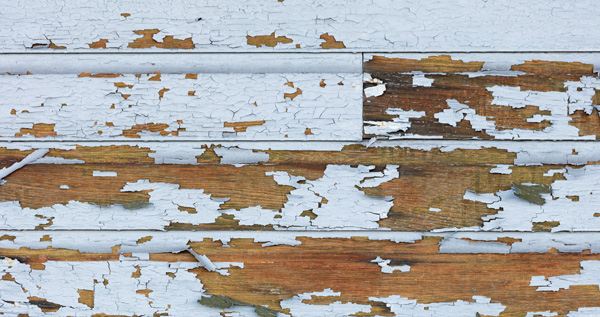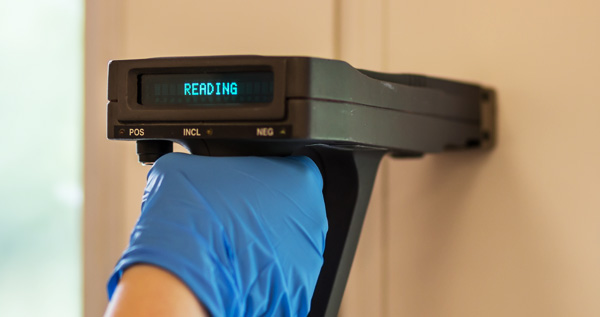Northbrook Lead Abatement
We help people all throughout Chicago and the surrounding suburbs. Keeping your family healthy and safe.
Optima Construction & Abatement is a certified lead abatement contractor. Our licensed professionals abate the potential hazards of lead-based paint safely following guidelines set forth by State and Federal Government.
Protect Your Family from Exposures to Lead
The Consumer Product Safety Commission banned lead-based paint in 1977. Unfortunately, many homes built before 1978 have paint that contains lead. Lead is especially damaging to children under age six whose bodies are still developing.
One out of every eleven children in the United States has dangerous levels of lead in their bloodstream. Lead causes nervous system damage, stunted growth, delayed development and affects every organ system of the body. It also is dangerous to adults, and can cause reproductive problems for both men and women.
One myth related to lead-based paint is that the most common cause of poisoning was eating leaded paint chips. When in fact, the most probable pathway of childhood lead exposure is through ingestion of lead dust through normal hand-to-mouth contact when children swallow lead dust from deteriorated paint or leaded dust generated during remodeling or painting.
Sources of Lead at Home...
Older Homes and Buildings
- Lead paint is still present in millions of homes, sometimes under layers of newer paint. If the paint is in good shape, the lead paint is usually not a problem. Deteriorating lead-based paint (peeling, chipping, chalking, cracking, damaged, or damp) is a hazard and needs immediate attention.
- It may also be a hazard when found on surfaces that children can chew or that get a lot of wear-and-tear, such as windows and window sills, doors and door frames, and stairs, railings, banisters, and porches.
- Be sure to keep all paint in excellent shape and clean up dust frequently. Read about simple steps to protect your family from lead hazards
- Lead in household dust results from indoor sources such as deteriorating lead-based paint.
- Lead dust can also be tracked into the home from soil outside that is contaminated by deteriorated exterior lead-based paint and other lead sources, such as industrial pollution and past use of leaded gasoline.
- Renovation, repair or painting activities can create toxic lead dust when painted surfaces are disturbed or demolished. Learn more about hiring lead-safe certified contractors.
- Pipes and solder - Lead is used in some water service lines and household plumbing materials.
- Lead can leach, or enter the water, as water flows through the plumbing. Lead pipes and lead solder were commonly used until 1986.
Soil, Yards and Playgrounds
Lead can be found in Dust
Lead can be found in many products
Drinking Water
Jobs and Hobbies
Folk Remedies

Cracking and peeling lead paint off of wood sliding.

Detecting lead-based paint using an XRF analyzer.
What is Lead?
Lead is a naturally occurring element found in small amounts in the earth’s crust. While it has some beneficial uses, it can be toxic to humans and animals causing of health effects.
Where is Lead Found?
Lead can be found in all parts of our environment – the air, the soil, the water, and even inside our homes. Much of our exposure comes from human activities including the use of fossil fuels including past use of leaded gasoline, some types of industrial facilities, and past use of lead-based paint in homes. Lead and lead compounds have been used in a wide variety of products found in and around our homes, including paint, ceramics, pipes and plumbing materials, solders, gasoline, batteries, ammunition, and cosmetics.
Lead may enter the environment from these past and current uses. Lead can also be emitted into the environment from industrial sources and contaminated sites, such as former lead smelters. While natural levels of lead in soil range between 50 and 400 parts per million, mining, smelting, and refining activities have resulted in substantial increases in lead levels in the environment, especially near mining and smelting sites.
When lead is released to the air from industrial sources or vehicles, it may travel long distances before settling to the ground, where it usually sticks to soil particles. Lead may move from soil into ground water depending on the type of lead compound and the characteristics of the soil.
Federal and state regulatory standards have helped to reduce the amount of lead in air, drinking water, soil, consumer products, food, and occupational settings.
Who is at Risk?
Children - Lead is particularly dangerous to children because their growing bodies absorb more lead than adults do and their brains and nervous systems are more sensitive to the damaging effects of lead. Babies and young children can also be more highly exposed to lead because they often put their hands and other objects that can have lead from dust or soil on them into their mouths. Children may also be exposed to lead by eating and drinking food or water containing lead or from dishes or glasses that contain lead, inhaling lead dust from lead-based paint or lead-contaminated soil or from playing with toys with lead paint.
Adults, Including Pregnant Women - Adults may be exposed to lead by eating and drinking food or water containing lead or from dishes or glasses that contain lead. They may also breath lead dust by spending time in areas where lead-based paint is deteriorating, and during renovation or repair work that disturbs painted surfaces in older homes and buildings. Working in a job or engaging in hobbies where lead is used, such as making stained glass, can increase exposure as can certain folk remedies containing lead. A pregnant woman’s exposure to lead from these sources is of particular concern because it can result in exposure to her developing baby..
What are the Health Effects of Lead?
Lead can affect almost every organ and system in your body. Children six years old and younger are most susceptible to the effects of lead.
Children
Even low levels of lead in the blood of children can result in:
- Behavior and learning problems
- Lower IQ and Hyperactivity
- Slowed growth
- Hearing Problems
Pregnant Women
Other Adults
Lower Your Chances of Exposure to Lead
Try these simple steps...
Simple steps like keeping your home clean and well-maintained will go a long way in preventing lead exposure. You can lower the chances of exposure to lead in your home, both now and in the future, by taking these steps:
- Inspect and maintain all painted surfaces to prevent paint deterioration
- Address water damage quickly and completely
- Keep your home clean and dust-free
- Clean around painted areas where friction can generate dust, such as doors, windows, and drawers. Wipe these areas with a wet sponge or rag to remove paint chips or dust
- Use only cold water to prepare food and drinks
- Flush water outlets used for drinking or food preparation
- Clean debris out of outlet screens or faucet aerators on a regular basis
- Wash children's hands, bottles, pacifiers and toys often
- Teach children to wipe and remove their shoes and wash hands after playing outdoors
- Ensure that your family members eat well-balanced meals. Children with healthy diets absorb less lead.
What do I do if I think my child or I have been exposed to lead?
Talk to your pediatrician, general physician, or local health agency about what you can do. Your doctor can do a simple blood test to check you or your child for lead exposure. You may also want to test your home for sources of lead.
Therefore, it is encouraged to have a licensed professional stabilize any deteriorated (peeling, chipping, cracking, etc.) paint in a lead-safe manner. Optima Construction is a certified lead abatement contractor. Our licensed professionals abate the potential hazards of lead-based paint safely following guidelines set forth by State and Federal Government.

Contact Optima Construction & Abatement if you feel your family has been exposed to lead.
Ask us how we can help make your home safe.
Email Us